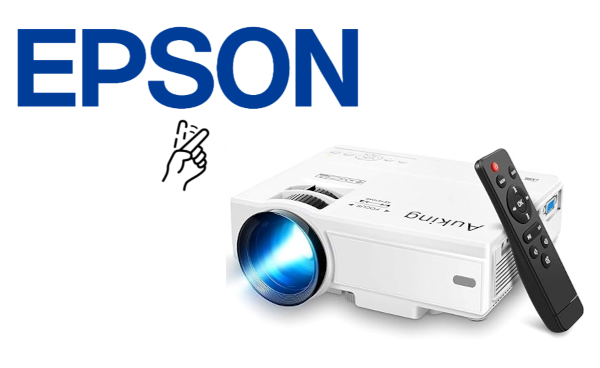Collection of word games. You can comfortably study while playing on word games. Surely you will feel satisfied about the games it offers wordle unlimited
AuKing Ordered to Pay $500,000 for Making Deceptive Projector-Brightness Claims

Last week, a U.S. District Court in Massachusetts ordered the Chinese brand to pay $529,000 in damages in a lawsuit brought by Epson, finding that AuKing was competing unfairly against Epson “by using false, deceptive, or misleading statements of fact that misrepresent the nature, quality, and characteristics of [its] projector products.”
AuKing was further ordered to refrain from false or misleading advertising of its projector products and enjoined from selling its projectors online until it corrected the false advertising.
“With the actual lumens measured at less than 1% of AuKing’s claimed 9,500 lumens, these highly inaccurate statements deceive consumers, misrepresent the quality of projection, and ultimately impact the integrity of the industry,” Epson said, noting that “white brightness measured in lumens” is a key spec consumers use to make projector buying decisions.
AuKing sells mini projectors online at prices so low that it made the Amazon Bestseller list last year with a $65 projector claiming 9,500 lumens brightness, one of the models that no doubt caught the attention of Epson and other industry watchers. Tech writer/reviewer Geoffrey Morrison wrote in a CNET review last year that AuKing’s M8-F projector “fails to live up to any of its grand claims.” It’s not clear if the M8-F was specifically named in the lawsuit.
The AuKing brand is owned by Shenzhen HongHuiLianXin Technology Co., Ltd, which manufactures a wide variety of electronics products and accessories, including cabinets for loudspeakers, headphones, portable media players and television monitors.
“Consumers count on companies to provide reliable and accurate product information and performance specs,” said Mike Isgrig, vice president, consumer sales and marketing for Epson America. “As an ongoing issue, brands that are falsifying lumen claims are not only hurting the end-user experiences of consumers, but also the overall perception of projection viewing, damaging the industry as whole. The highly inaccurate lumen claims provided by AuKing is an example of gross negligence on the part of a brand and its commitment to truth in advertising.”
Epson cautions shoppers to be wary of misleading metrics listed as “Lux,” “LED lumens,” “CVIA,” or “Lamp Brightness” that fail to follow standardized methodology, which impacts a consumer’s ability to compare projector performance.
The standards Epson is referring to include projection measurements defined by the International Organization for Standardization (ISO) and the International Committee for Display Metrology (ICDM). The ICDM publishes the Information Display Measurement Standards (IDMS) methodology that defines color brightness and white brightness separately. The ISO standard that defines a methodology for projector measurement is ISO21118:2020.
Related:
China’s XGIMI Corrects Misleading Projector Specs in Settlement with Epson (posted 9/18/23)
Epson Calls Out Wemax for Deceptive Brightness Spec (posted 7/14/23)
Epson vs. Vava vs. Lumens (posted 6/21/21)
Epson, Philips Agree on Industry Standard Projector Specs (posted 3/8/21)
- Log in or register to post comments


Recently a friend of mine recommended me a very convenient site for playing online slot games - 888 Casino , and on this site I was able to play all the quality slot games online and win real money online in the United Kingdom! I really liked this site, because thanks to this site I was able to play slot machines and win!

Your knowledge is really useful. Like you, I regularly search for the game dordle to kill time in my free time; to show you, you should try it minimum once.



















































